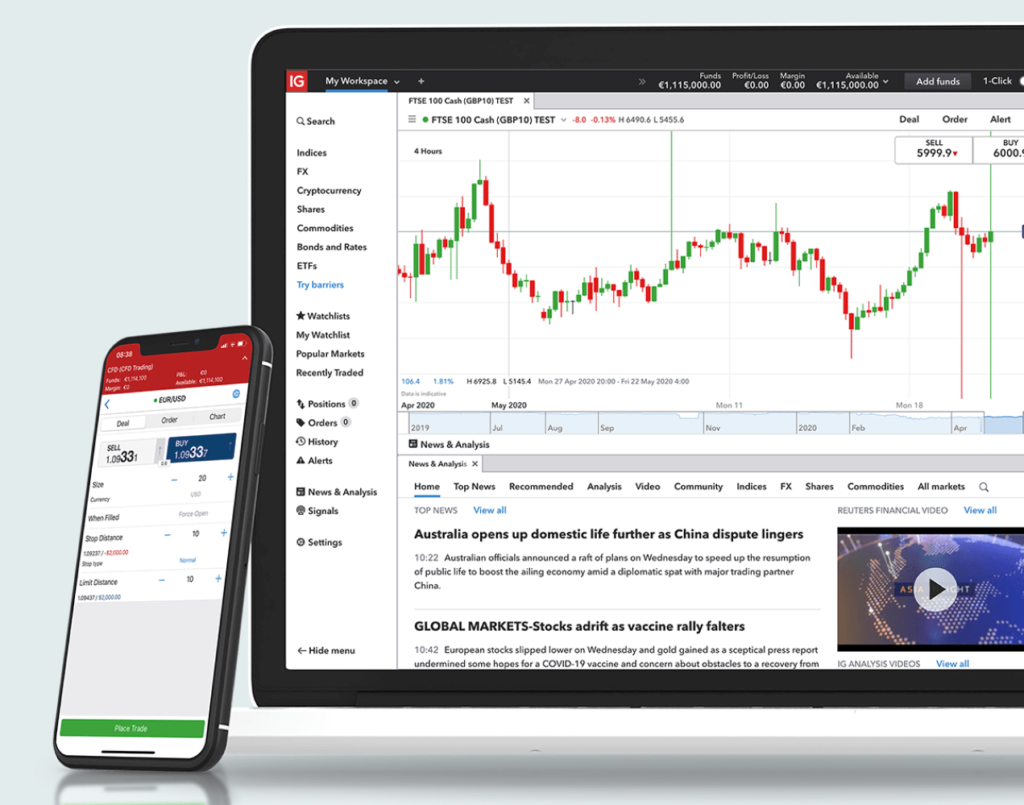Is Social Trading a Good Idea?

Social trading has emerged as a popular and noteworthy concept in the realm of online trading, eliciting significant interest from both neophytes and seasoned traders. In essence, social trading entails the sharing of trading notions, strategies, and pertinent information on financial markets within a community of traders. This mode of trading has gained traction due to its propensity to enable facile access to trading data and offer opportunities for traders to gain insights from their peers.
Social trading platforms afford traders the facility to connect, track, and replicate the trading decisions of proficient traders with the aim of realizing profits. Notwithstanding the many advantages of social trading, such as low barriers to entry, ease of market entry, and opportunities to learn from other traders, it also carries its own set of risks and constraints. In this article, we will explore what social trading is, its pros and cons, as well as the related social trading concepts necessary to get started in this field.
What is Social Trading
The emergence of cryptocurrencies and digital assets has sparked a resurgence of interest in social trading platforms, which had previously experienced a period of stagnation. As a result, a plethora of social trading platforms have arisen, catering to the burgeoning demand from millennial traders who prioritize the convenience of mobile trading. These platforms proffer traders the ability to emulate the trades of their favored traders with the mere push of a button. While certain communities are active and foster the exchange of trading ideas, and financial market discussions, and offer limited educational content, others center around copy trading with minimal interaction between traders and followers.
Social trading platforms facilitate the interchange of financial market insights, trading strategies, and knowledge sharing among traders within the community. Given its emphasis on effortless decision-making, social trading has garnered a substantial following among millennial traders. However, it is paramount to acknowledge the risks inherent in this approach.
Benefits and Potential Pitfalls
Social trading has emerged as a rapidly growing trend within the financial industry, providing traders with a platform to connect and share information with one another. This approach offers an invaluable opportunity for inexperienced traders to learn from experienced ones, and for seasoned traders to expand their reach.
One of the most notable advantages of social trading is the ability to peruse the trading histories of other traders to identify those who have demonstrated consistent success. This allows followers to make informed decisions on whom to copy and engage with, thereby optimizing their results. This feature of social trading provides a tremendous advantage for traders who lack the experience or skills to make trades themselves.
In addition to this, active communication with strategy providers within the social trading platform can significantly boost traders’ confidence. Engaging with successful traders, posing queries, and receiving personalized advice can equip novice traders with invaluable knowledge and confidence as they learn from those who have already succeeded in the market. Social trading platforms also offer access to live trading signals, real-time market data, and various other tools to aid traders in making informed decisions.
While social trading may offer several advantages, traders must be aware of its potential risks. One notable risk is the hidden aspects of traders who provide signals, which can contribute to the overall risk of trading. Social trading platforms may provide performance details about a trader, but they do not provide information about the capital or diversification of the portfolio. Followers must conduct their due diligence and thoroughly research the traders they plan to copy to avoid taking unnecessary risks.
Another significant risk associated with social trading is the propensity to become overconfident and engage in excessive risk-taking. Social trading may appear promising, but its efficacy is entirely dependent on the quality of traders within the community. Traders who follow others must possess a deep understanding of the market and have the ability to detect potential mistakes by the traders they copy. Additionally, traders must continually monitor their portfolios to avoid long-term losses. Failure to do so can result in significant losses that far outweigh any potential gains.
Social Trading Concepts
Social trading is a burgeoning phenomenon within the financial industry, comprising four distinct sub-sectors, each fulfilling a specific function in satisfying the demands of social traders. Mirror trading, the initial sub-sector, offers a fully automated environment for high-frequency trading, where traders can imitate a particular trading strategy rather than replicating an individual trader’s trades. However, it requires a more advanced skill set and a substantial capital base. Consequently, meticulous research into the strategy’s suitability is necessary before its replication.
Copy trading, the second sub-sector is a widely accepted social trading method where traders copy a selected trader’s trades automatically. This strategy is particularly advantageous for traders who prefer a more hands-off approach to trading and who lack the time, knowledge, or experience to make independent trading decisions. It is an opportunity for copiers to benefit from the expertise of accomplished traders and potentially earn high profits without having to conduct extensive research themselves.
The third sub-sector, social trading, is chiefly concerned with community engagement and knowledge sharing. It involves manual trade placement, but traders interact and share trading ideas with one another through the trading platform’s tools and resources. The community engagement aspect of social trading enables traders to connect and collaborate with other traders, sharing their insights and experiences, and benefiting from the community’s collective wisdom. This approach is ideal for traders who seek to participate in a supportive community of like-minded individuals and learn from their peers’ experiences and insights.
The fourth sub-sector, signals, and tips encompass trading recommendations that traders publish for free, brokers offer, or paid-for signal providers provide. This type of trading approach does not facilitate interaction between traders and followers, with copiers solely receiving trading recommendations from experienced traders. However, caution is necessary for such an environment, and followers must conduct due diligence before replicating trades. Signal and tip providers possess varying levels of reliability, and copiers must only follow those who have demonstrated a proven track record of success.
Wrap up
In conclusion, social trading offers several advantages and potential pitfalls that traders must consider. Traders must conduct their due diligence, possess market knowledge, stay at par with the social trading concepts, and monitor their portfolios continually to ensure that they are making informed decisions. Social trading can provide novice traders with an opportunity to learn from experienced ones, and experienced traders with a broader audience to share their knowledge. However, traders must also recognize that social trading can be a double-edged sword and must exercise caution when engaging in this approach.
Research Snipers is currently covering all technology news including Google, Apple, Android, Xiaomi, Huawei, Samsung News, and More. Research Snipers has decade of experience in breaking technology news, covering latest trends in tech news, and recent developments.









